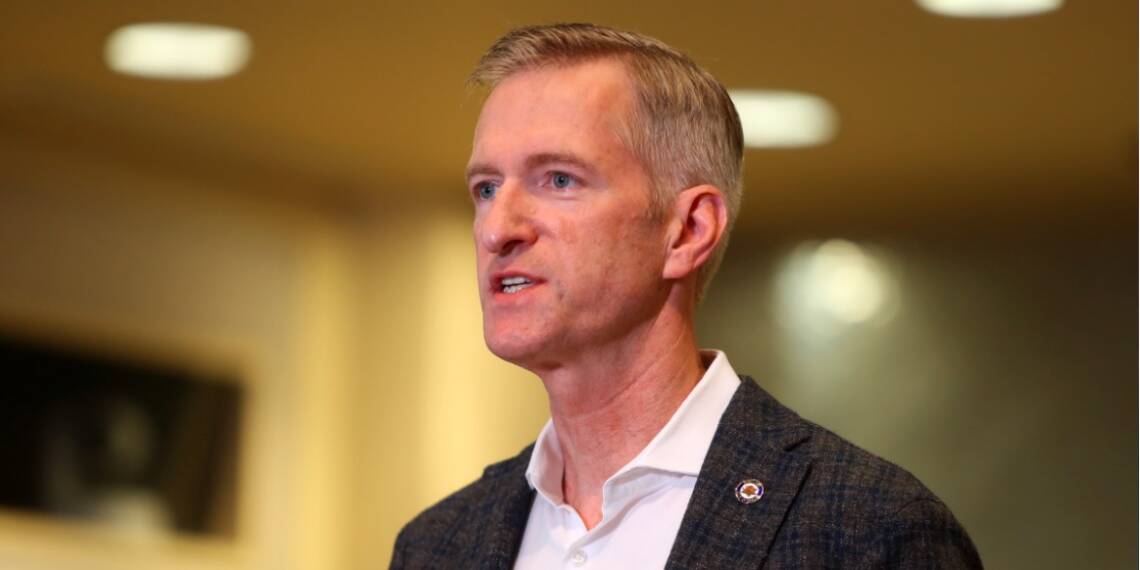Days after the city of Portland registered its 20th homicide, Mayor Ted Wheeler announced that he would pursue $2 million in one-time funding to allow for more robust policing on city streets, as well as increased civilian oversight, in an attempt to curb an increasing wave of gun violence.
The announcement was alongside religious and community leaders, who urged officials in Portland to move quickly to prevent more people from dying in shootings, particularly young black and brown people, who have been disproportionately affected by the violence.
The inter-faith group advocated for the reinstatement of a dedicated uniformed police patrol team to “act on illegal intelligence,” to capture and seize weapons, as well as work to deter shootings and retaliatory violence in the region. According to the group’s letter to Mayor Wheeler and city commissioners, the group will also respond to shootings, conduct follow-up investigations, and engage with people who are at risk of gun violence.
The interfaith organisation also wants five more detectives to look into gun violence, more support for the newly created six-officer on-call team that responds to shootings around the clock, and a new independent neighbourhood commission to collect data on the officers’ stops and arrests as well as their effectiveness.
The mayor’s idea mirrors a strategy that Police Chief Chuck Lovell outlined to him in writing on Dec. 23 following months of meetings with Portland’s Interfaith Peace and Action Collaborative. Mayor Wheeler made the announcement during a Zoom video conference with members of the neighbourhood collaborative. Lovell was out of town on Thursday for school.
The police chief also recommended that the new uniformed unit be made up of two sergeants and 12 officers, with some of the officers coming from the current patrol force. Lovell has also recommended that Portland should consider allowing the Police Bureau to rehire retired officers for a two-year period to assist with staffing.
Wheeler answered the broader issue of how the current police solution will vary from the previous police Gun Violence Reduction Team, which was dissolved in June by the City Council due to budget cuts of $15 million.
The cutbacks “created a vacuum that undermined public safety and the very communities whose voices the Council — and our community — seek to amplify,” wrote J. W. Matt Hennessee, chairperson of the collaborative.
Executive Pastor Ed Williams of Mt. Olivet Baptist Church said that his heart breaks for the community that has to “live under this heavy blanket of fear and trauma and distress. There’s just too much blood on the streets, and we’ve got to be focused and we’ve got to be determined and fed up enough to want to do something about it,” he said.
According to the collaborative participants, increased funding for police must be accompanied by increased support for street-level outreach workers and other support programmes for people affected by the abuse.
The group said, “We passionately endorse actions to address serious issues about racial justice and local policing. We want to advance police reform while also assisting in the reduction of gun violence.”
A similar turnaround was also seen in Minnesota. The left-leaning Democrats’ “abolish the police” crusade forced the departure of experienced police officers and all but killed the Minneapolis Police Department’s recruiting efforts to find even a normal replacement level. The city became a crime haven and crime rates went through the roof.
There, the city council had been forced to backtrack. The Antifa-BLM protestors pushed for the defund, and the city council towing the left agenda did just that. As a consequence, the crime rates went up and normal citizens begged the city council for police officers, and life came a full circle as the police were refunded.
In Portland too, life has come to a full circle it seems, after major cutbacks, the citizens cry for a fully-funded police force has reached Mayor Wheeler, who himself is leading the charge to refund the police.








